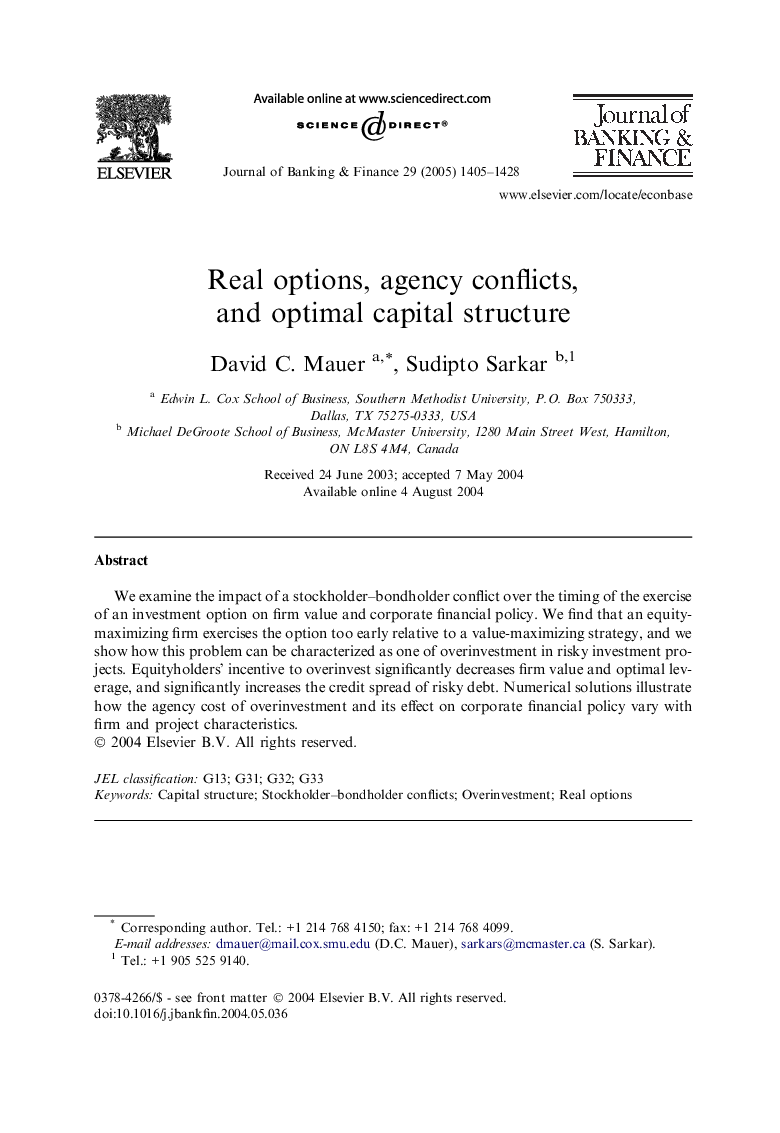| Article ID | Journal | Published Year | Pages | File Type |
|---|---|---|---|---|
| 9553871 | Journal of Banking & Finance | 2005 | 24 Pages |
Abstract
We examine the impact of a stockholder-bondholder conflict over the timing of the exercise of an investment option on firm value and corporate financial policy. We find that an equity-maximizing firm exercises the option too early relative to a value-maximizing strategy, and we show how this problem can be characterized as one of overinvestment in risky investment projects. Equityholders' incentive to overinvest significantly decreases firm value and optimal leverage, and significantly increases the credit spread of risky debt. Numerical solutions illustrate how the agency cost of overinvestment and its effect on corporate financial policy vary with firm and project characteristics.
Related Topics
Social Sciences and Humanities
Economics, Econometrics and Finance
Economics and Econometrics
Authors
David C. Mauer, Sudipto Sarkar,
